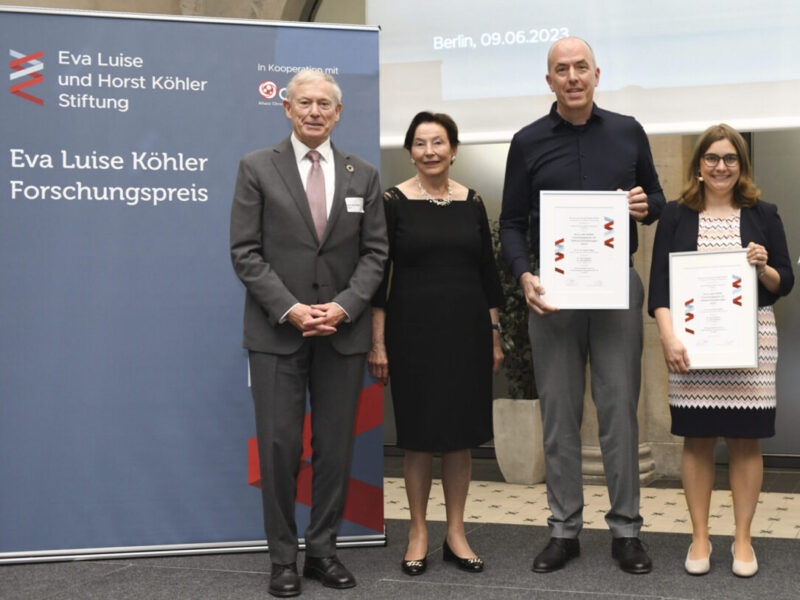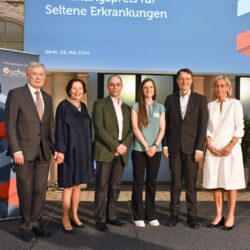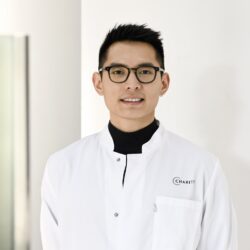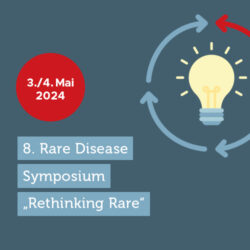Festakt mit Bundesgesundheitsminister Lauterbach in der Berlin-Brandenburgischen Akademie der Wissenschaften – Therapieentwicklung für Erbkrankheit PCH2a
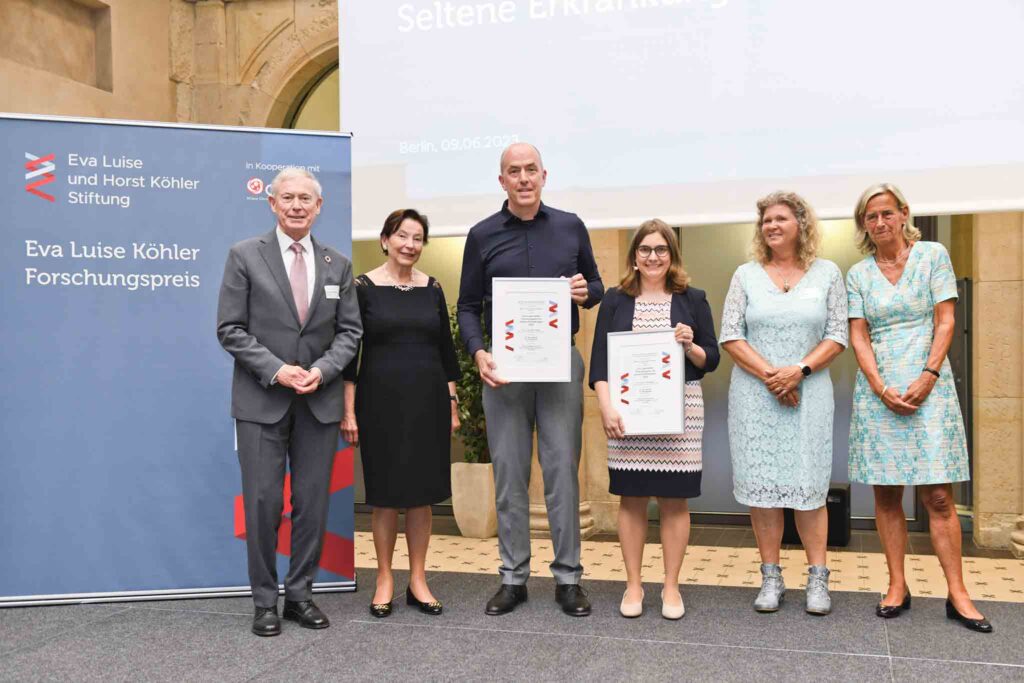
„Hinter jeder Seltenen Erkrankung steht ein Mensch, eine Familie, stehen Sorgen und Hoffnung. Im guten Umgang mit deren Bedürfnissen beweist sich eine gerechte Gesellschaft“, mit diesen Worten drückte Bundesgesundheitsminister Prof. Dr. Karl Lauterbach am Freitagabend im Rahmen der Verleihung des 15. Eva Luise Köhler Forschungspreises für Seltene Erkrankungen am 9. Juni 2023 in Berlin seine Verbundenheit mit den Betroffenen aus. Er versicherte: „Die Bundesregierung wird alles tun, was in unserer Macht steht, um die wichtige Forschung zu Seltenen Erkrankungen zu unterstützen!“
Festakt in der Berlin Brandenburgischen Akademie der Wissenschaften
Gemeinsam mit rund 200 geladenen Gästen war der Bundesminister der Einladung der Eva Luise und Horst Köhler Stiftung in die Berlin Brandenburgische Akademie der Wissenschaften gefolgt. Dr. Simone Mayer vom Hertie-Institut für klinische Hirnforschung und der Universität Tübingen erhielt die mit der Allianz Chronischer Seltener Erkrankungen ACHSE e.V. vergebene Auszeichnung für ihr Forschungsvorhaben zu einer Therapieentwicklung für die neurologische Erbkrankheit Pontocerebelläre Hypoplasie Typ 2 (PCH2). Mit ihr zusammen wurden Dr. Axel Lankenau und Dr. Julia Matilainen vom Selbsthilfeverein PCH-Familie geehrt.
PCH2 ist eine sehr schwere neurologische Entwicklungsstörung bei Kindern. Sie wird durch einen einzigen vertauschten DNA-Baustein verursacht. Die winzige Genveränderung, die nur bei etwa einem von einer Millionen Menschen auftritt, bedingt eine Störung der Entwicklung bestimmter Hirnareale, die zu erheblichen Einschränkungen der psychomotorischen Entwicklung führt. Die meisten betroffenen Kinder sterben, noch bevor sie das Jugendalter erreichen.
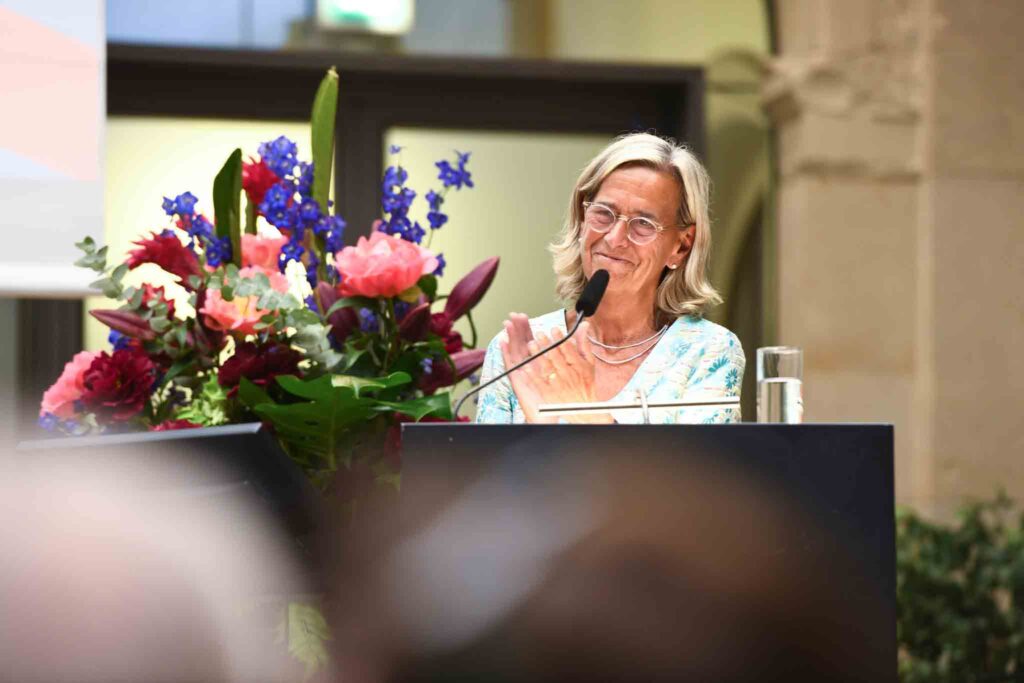
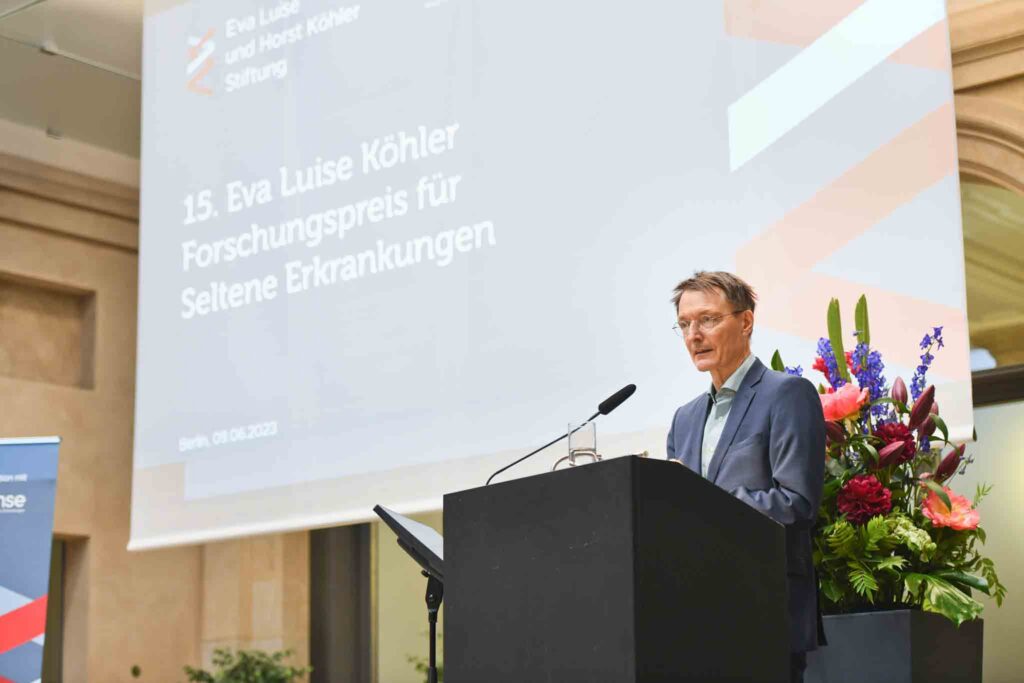
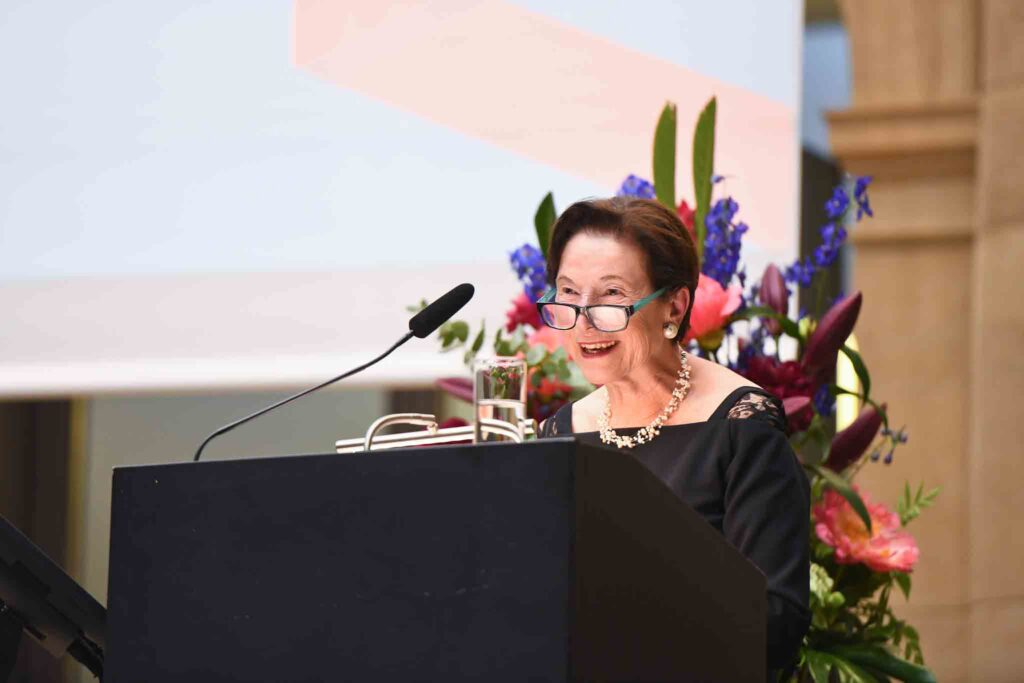
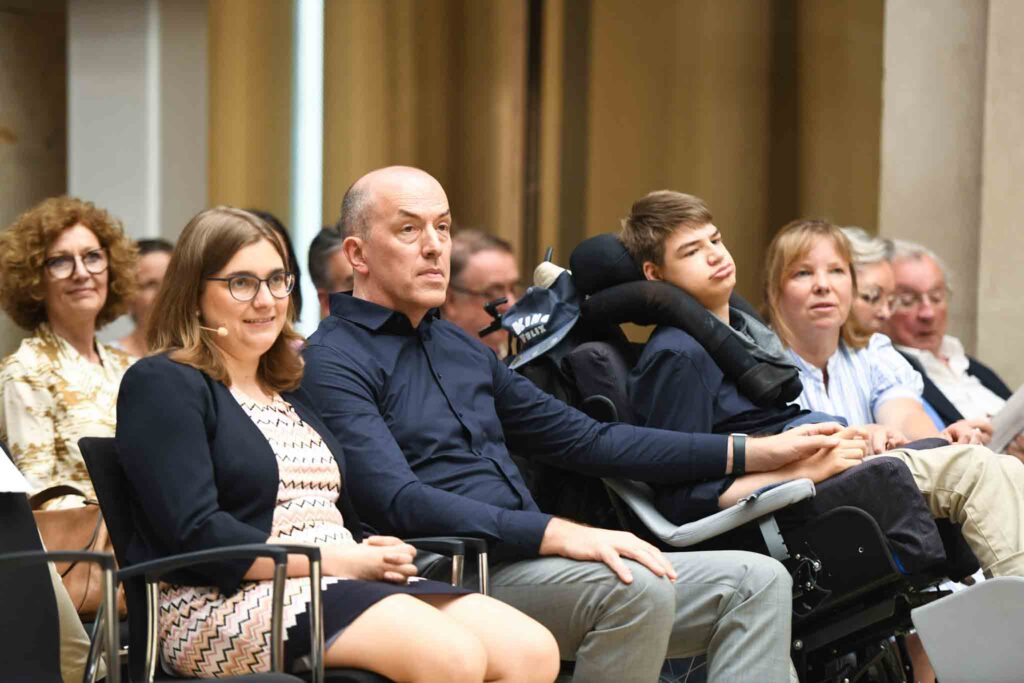
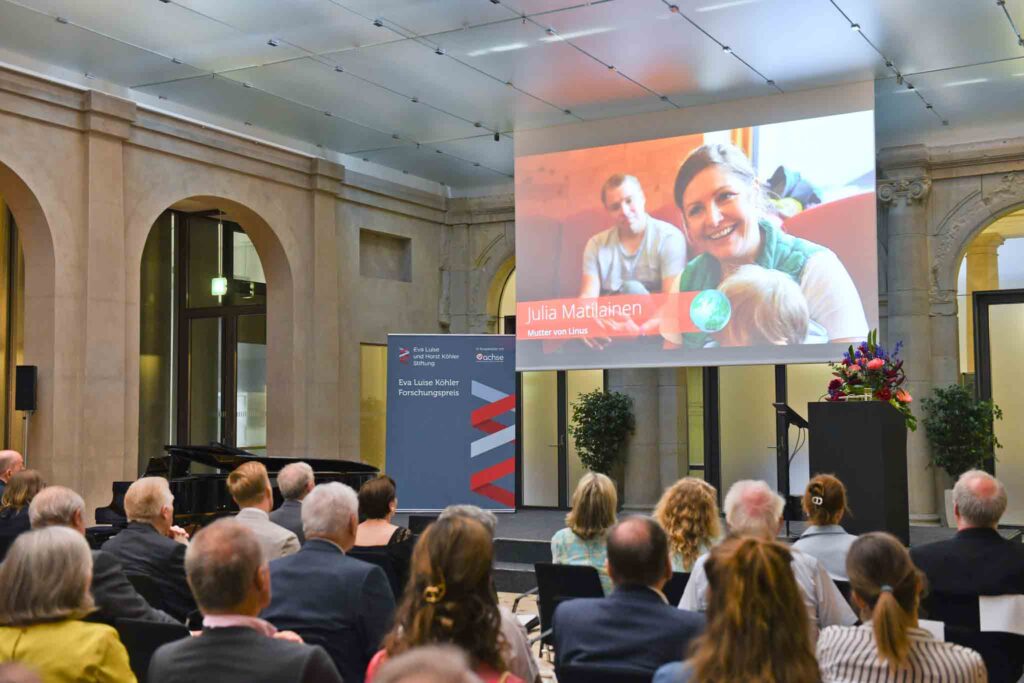
Organoid-Forschung weckt Hoffnung für PCH2a und weitere Erkrankungen
Mit dem Preisgeld in Höhe von 50.000 Euro wird Dr. Simone Mayer aussichtsreiche Wirkstoffkandidaten zur Behandlung von PCH2a, der häufigsten Form von PCH2, überprüfen. Eindrücklich erläuterte die Wissenschaftlerin in einer Lecture, wie sie mit ihrer Forschungsgruppe am Hertie-Institut für klinische Hirnforschung in Tübingen Hirnorganoide nutzt, die aus gespendeten Hautzellen von PCH2a-betroffenen Kindern erzeugt werden. Diese Gewebestrukturen können außerhalb des menschlichen Körpers dreidimensional wachsen und die zelluläre Architektur sowie bestimmte funktionale Aspekte von Gehirnarealen imitieren. Hirnorganoide gewähren Forschenden somit Einblicke in die frühe Gehirnentwicklung und die Entstehung neurologischer und psychiatrischer Erkrankungen. Zudem ermöglichen sie die Untersuchung der Effekte von Medikamenten, Giftstoffen, Keimen oder Viren sowie genetischer Variabilität auf menschliche Gehirnzellen und die Gehirnentwicklung.
Medizinischer Fortschritt eröffnet historisches „window of opportunity“
Warum das innovative Forschungsvorhaben überzeugen konnte, erklärte Prof. Dr. Annette Grüters-Kieslich, Vorstandsvorsitzende der Eva Luise und Horst Köhler Stiftung in ihrer Laudatio: „Die Arbeit mit stammzellbasierten Hirnorganoiden zeigt die enormen wissenschaftlichen und technologischen Fortschritte auf, die Forschenden und uns als Gesellschaft ein historisches „window of opportunity“ eröffnen“, betonte sie und zeigte sich beeindruckt von der engen Zusammenarbeit zwischen der Forscherin und den betroffenen Familien: „Sie sind ein wahrlich starkes Team. Hier sehen wir, was im Bereich der Seltenen Erkrankungen möglich ist, wenn alle gemeinsam an einem Strang ziehen und in der Überzeugung handeln: Erfolgreich geforscht werden kann nur MIT den Betroffenen, nicht über sie.“
Diese Überzeugung teilt auch Preisträger Axel Lankenau, der große Hoffnung in die Forschung setzt. „Es waren noch nie so viele hochmotivierte Menschen unter so guten Voraussetzungen in dem Thema engagiert wie genau jetzt!“, betonte er in einem Impulsvortrag, in dem er eindrücklich Einblicke in das Leben mit seinen beiden an PCH2 erkrankten Söhnen Felix und Jonas gab. Lankenau erzählte davon, wie er seinen Söhnen mehr Lebensqualität ermöglicht und Momente des Glücks schafft. Dies sei nur mit Hilfe eines 15-köpfigen Pflegeteams umsetzbar, betonte der Vorsitzende des Selbsthilfe Vereins PCH-Familie. Er appellierte an die politischen Entscheider, diese dringend benötigte Versorgung auch bei der Umsetzung der geplanten Außerklinischen Intensivpflege-Richtlinie umzusetzen.
Seltene brauchen starke Allianzen – es bleibt viel zu tun
Die Bedeutung von Zusammenarbeit und Allianzen betonte ebenfalls Eva Luise Köhler, auch Schirmherrin der Allianz Chronischer Seltener Erkrankungen ACHSE e. V., in ihrem Grußwort: „Von Herzen lade ich alle ein, sich unserer Mission anzuschließen – ganz gleich, ob als forschende oder als fördernde Partnerinnen und Wegbereiter. Gemeinsam wollen wir in einem Schulterschluss unser Möglichstes tun, um medizinischen Fortschritt zu ermöglichen. Und zwar gezielt dort, wo er dringend gebraucht wird, aber noch nicht ausreichend gesichert ist.“ Rückblickend auf 17 Jahre Stiftungsarbeit für Menschen mit Seltenen Erkrankungen hielt sie fest: „Es wurde schon viel erreicht, und doch bleibt viel tun und wir müssen uns anstrengen, das Erreichte zukunftsfest zu machen.” Beispielhaft nannte sie eine ausreichende Finanzierung der Zentren für Seltene Erkrankungen, die Fortführung des Nationalen Aktionsbündnisses NAMSE und den Ausbau des von der Eva Luise und Horst Köhler Stiftung angestoßenen Registers für Seltene Erkrankungen NARSE.
Auch müssten Rahmenbedingungen geschaffen werden müssen, die exzellente Forschung hierzulande insbesondere auch im Bereich der Seltenen Erkrankungen möglich machen. Schließlich zeige sich immer wieder: „Wer die pathologischen Muster hinter einer Seltenen Erkrankung erkennt, kann daraus oftmals Ursachen häufiger Krankheiten ableiten.“
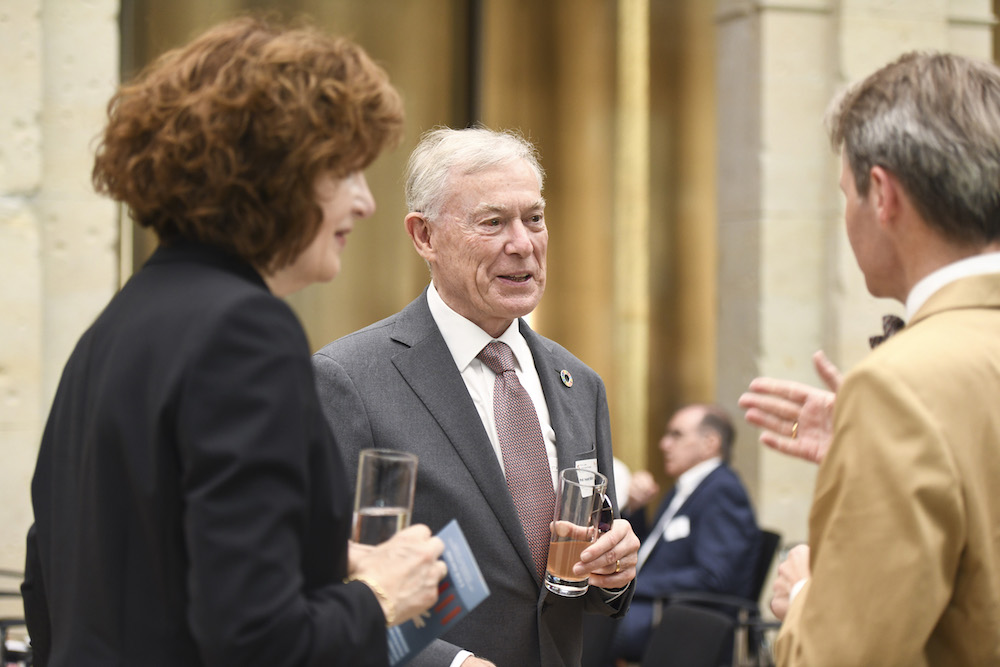
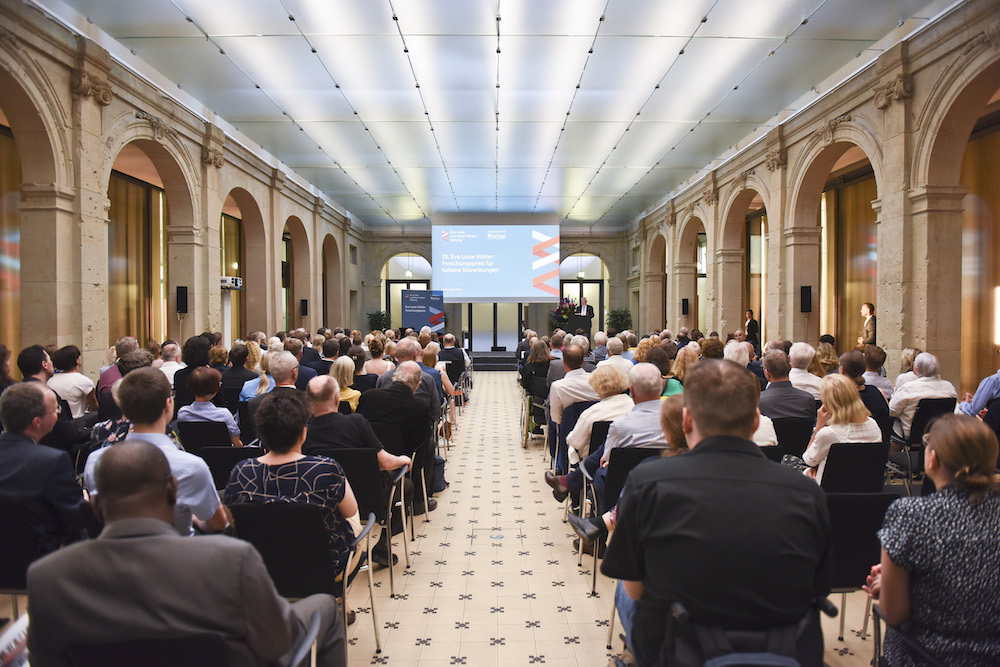
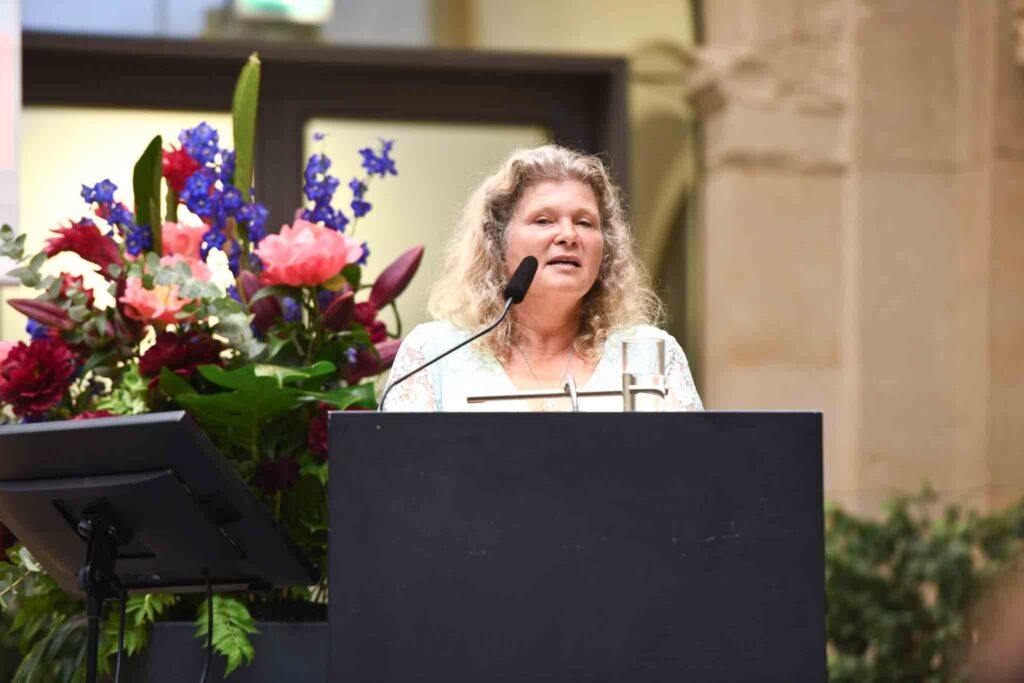
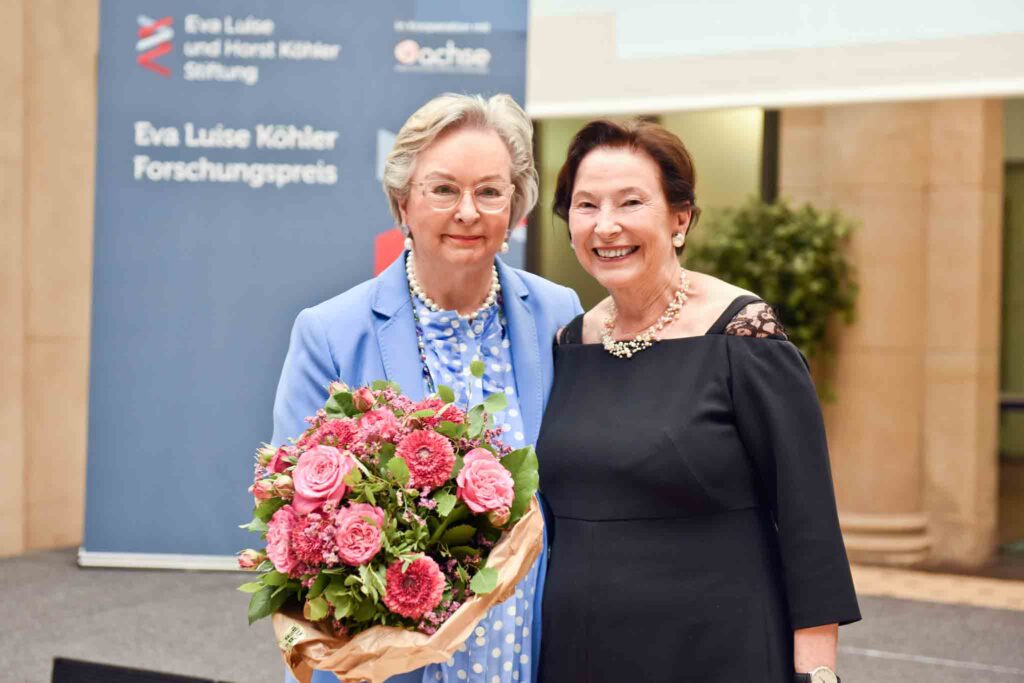
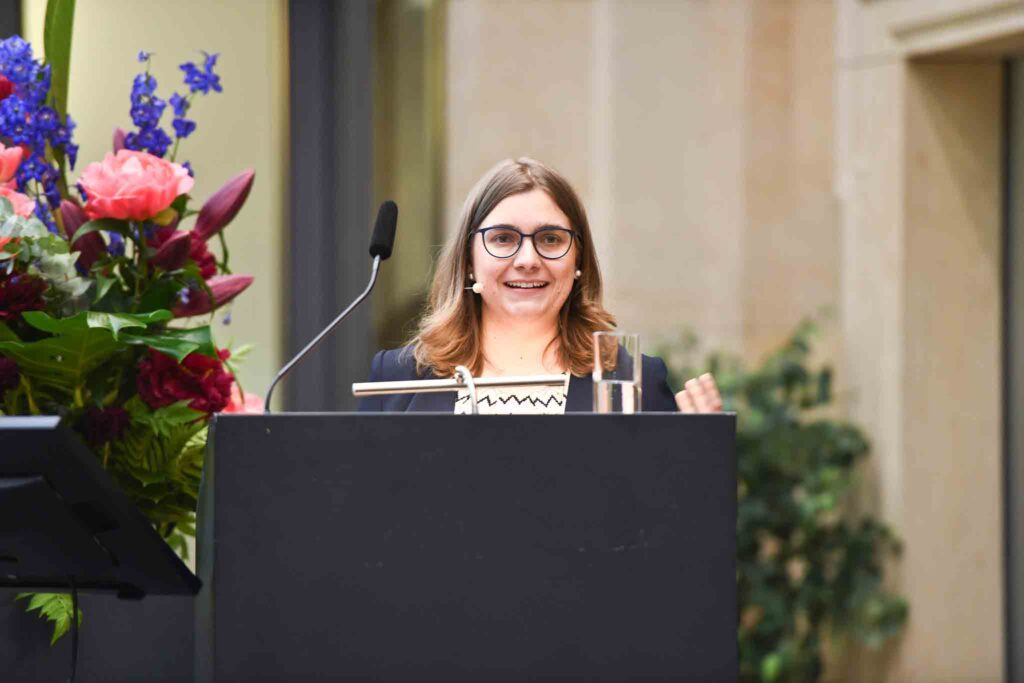
Auch in diesem Jahr gab es Abschluss der Veranstaltung eine freudige Überraschung: Wera Röttgering, die 1. Vorsitzende des Vereins Herzenswünsche aus Münster, überreichte einen symbolischen Spendenscheck über 30.000 Euro zur Unterstützung der von der Eva Luise und Horst Köhler Stiftung initiierten Forschungsinitiative Alliance4Rare.
